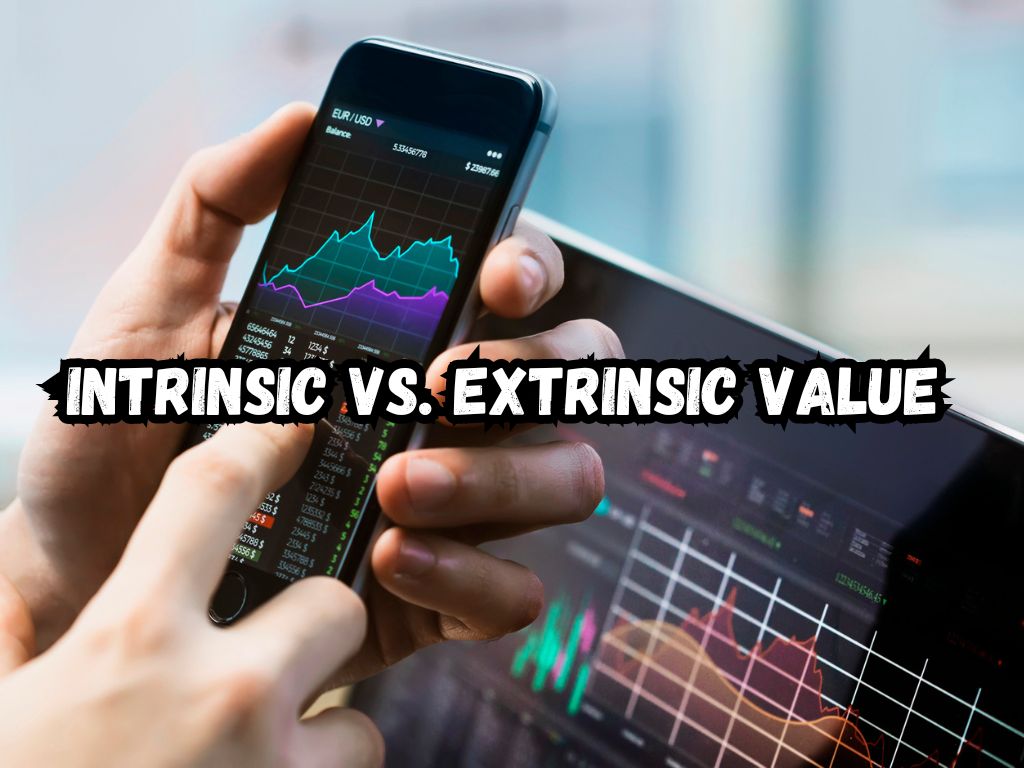In the journey of making informed decisions, whether in finance, personal development, or philosophy, understanding the concepts of intrinsic and extrinsic value plays a pivotal role.
These values provide a framework for assessing worth, guiding choices, and setting goals.
This comprehensive guide on intrinsic vs extrinsic value sheds light on the definitions, differences, and applications of intrinsic and extrinsic value.
Definition of Intrinsic Value
Intrinsic value refers to the inherent worth of something, independent of external factors. It is the value that something holds in its own right. For instance, in philosophy, intrinsic value might be the inherent virtue of kindness.
In finance, it relates to the actual value of a company, considering its assets, earnings, and growth potential, not just its current trading price.
Understanding intrinsic value requires a deep look into what makes something valuable from within. This internal value does not change with market trends or public opinion.
For example, the intrinsic value of a diamond lies in its clarity, carat, and rarity. These qualities remain valuable regardless of external views.

Definition of Extrinsic Value
Extrinsic value, on the other hand, arises from external factors. It depends on the perception, demand, and circumstances surrounding an item or concept.
In the realm of options trading, extrinsic value refers to the premium of an option above its intrinsic value, influenced by time until expiration and volatility.
Externally, a person’s value in a professional network might be seen as extrinsic, based on their connections rather than their inherent abilities.
Extrinsic value highlights how external circumstances or perceptions can add or subtract from the value of something.
For instance, a painting’s value might skyrocket because a famous person owned it, not just because of its artistic merit. This value is fluid, often changing with public perception and context.
Intrinsic vs Extrinsic Value: An Honest Comparison
While intrinsic value is inherent and stable, extrinsic value is dynamic and dependent on external conditions. The interplay between these values is crucial in decision-making.
For example, in investing, both intrinsic and extrinsic factors are considered to assess a stock’s potential for growth or risk.
Intrinsic value offers a foundation, a base level of worth. Extrinsic value then builds on this, fluctuating with external conditions.
Understanding both helps individuals and investors make informed decisions, balancing between what is inherently valuable and what gains worth from external factors.
Intrinsic and Extrinsic Value in Finance
The finance world heavily relies on the analysis of intrinsic and extrinsic value, especially in options trading.
The intrinsic value of an option is its in-the-money value, while the extrinsic value includes factors like time value and implied volatility. Investors calculate these values to determine whether an option is overvalued or undervalued in the market.
This financial application underscores the practical importance of distinguishing between intrinsic and extrinsic value.
Making informed investment decisions requires a deep understanding of these concepts, ensuring that choices are not just swayed by market sentiment but are grounded in fundamental value assessments.
Philosophical Perspectives
Philosophy delves into intrinsic and extrinsic value in exploring moral and ethical questions. In this context, intrinsic value often relates to concepts like happiness, virtue, and rights that hold value in and of themselves.
Extrinsic value in philosophy might refer to instrumental goods, valued for their ability to achieve or contribute to something else of value.
Philosophical perspectives offer a broader view, prompting us to consider what inherently matters in life and society versus what holds value because of external recognition or utility. This exploration encourages a reflective understanding of value, influencing ethical decision-making and personal fulfillment.

Practical Applications and Implications
Understanding intrinsic and extrinsic value extends beyond theory, impacting how we set goals, make choices, and pursue success.
Recognizing the intrinsic value in oneself or in pursuits like education encourages a focus on internal worth and long-term fulfillment.
Conversely, acknowledging extrinsic value helps navigate societal and economic landscapes, where perceptions and conditions shape opportunities and rewards.
In practical terms, balancing intrinsic and extrinsic values assists in holistic goal setting and motivation. It fosters resilience, ensuring that one’s sense of value is not solely dependent on external validation but is also rooted in inherent worth.
Frequently Asked Questions
What is intrinsic value in personal development?
In personal development, intrinsic value pertains to the inherent worth individuals find in themselves or their actions, independent of external validation or outcomes.
How do investors calculate extrinsic value in options?
Investors calculate extrinsic value by subtracting the intrinsic value from the option’s market price. This includes considering factors like the time remaining until expiration and market volatility.
Can a single item possess both intrinsic and extrinsic value?
Yes, an item can possess both intrinsic and extrinsic value. For example, a piece of art may have inherent worth due to its beauty (intrinsic) and additional value based on its historical significance (extrinsic).
How do intrinsic and extrinsic values impact ethical decision-making?
In ethical decision-making, intrinsic values guide choices based on inherent principles and virtues, while extrinsic values focus on outcomes, consequences, or societal norms. Balancing these values helps achieve well-rounded, ethical decisions.
Conclusion
Grasping the nuances of intrinsic and extrinsic value equips individuals with a foundational understanding crucial for informed decision-making in various aspects of life.
From financial investments to ethical considerations and personal growth, these concepts serve as guiding principles.
Recognizing the inherent worth in things and the value imparted by external factors enables a balanced, insightful approach to assessing worth and making choices.
By delving into the distinctions and interrelations between intrinsic and extrinsic values, individuals can navigate life’s complexities with a deeper understanding and appreciation for the multifaceted nature of value.


 Tags:
Tags:










